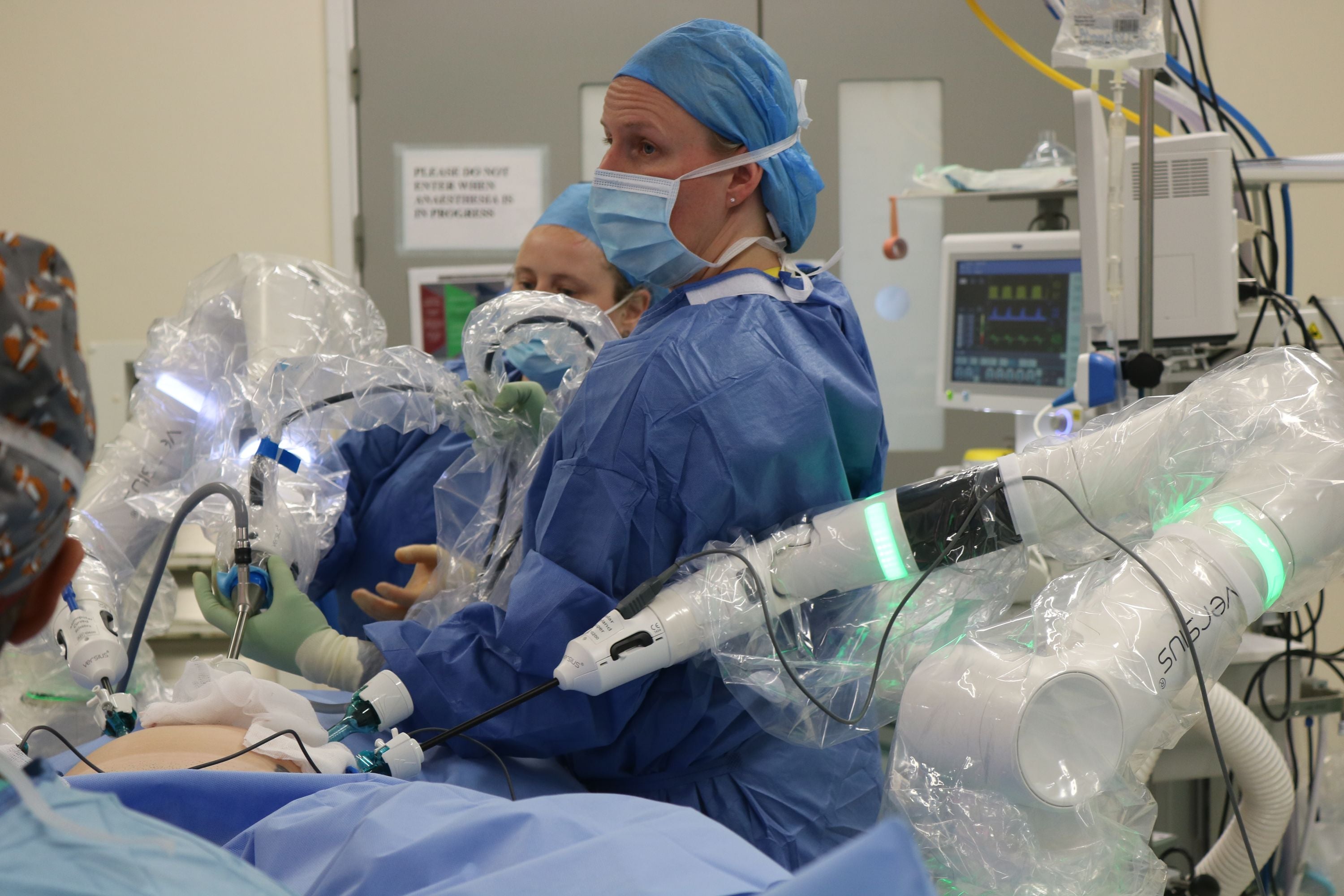A digital healthcare revolution: no time to waste
THE ARTICLES ON THESE PAGES ARE PRODUCED BY BUSINESS REPORTER, WHICH TAKES SOLE RESPONSIBILITY FOR THE CONTENTS

Life Sciences Hub Wales is a Business Reporter client
From video-calling GPs to using large datasets and artificial intelligence (AI) to better understand disease, there is a digital revolution underway in health. Transforming healthcare as we know it will help people benefit from faster, more personalised care closer to home, and promote economic growth and private investment.
Digital innovation can address some of the biggest challenges facing society. Our health and social care services in the UK are under severe pressure due to our ageing population living longer with co-morbidities, and the impacts of Covid-19. What’s more, the costs of healthcare have outstripped growth across OECD countries for the past 20 years. Continual increases in funding without commensurate increases in tax cannot be sustained. The adoption of digital innovation must be accelerated to help address this.
Digital innovation’s exciting applications
Digital innovation is a key focus area for Life Sciences Hub Wales. But what do we actually mean by it? The term encompasses many technologies already making a difference and others which are rapidly developing.
Remote monitoring technology is one area where we work with myriad innovators on projects including heart failure, mental health and wound care management. Allowing clinicians to keep an eye on patients remotely gives people more control over their health, enables early detection and supports prevention – ultimately making care more efficient.
Robotics is another application of digital innovation. Robotics process automation (RPA) emulates how humans interact with digital systems and software, freeing up valuable time and therefore offering significant opportunities for operational cost savings and improved efficiencies. And advances in physical robotics are also helping transform healthcare delivery, from operating theatres, where robots can assist in less invasive surgery, or even be used as companions for people living with dementia.
AI is set to result in faster and more accurate diagnosis, detection and treatment of illnesses. We are supporting its evaluation and adoption in areas such as pain management within social care settings. Here, it’s used to analyse face scans, accurately predicting pain levels for people living with dementia.
Predictive analysis, where information such as patient records and genomic data is analysed to forecast population health, is also at the helm of the digital healthcare revolution. This improves understanding and prediction of trends, helping to plan services and proactively implement healthcare policies that are preventative, not reactive.
Wales – a digital innovation hotbed
Wales’s health and social care systems, the flexible support and skills available and its population demographics are well-positioned to support digital innovation.
Welsh Government’s policies, such as the new Digital Health and Social Care Strategy (2022), which sets the ambition for Wales to lead in digital health and social care by 2030, underscore this. This strong policy direction is strengthened by the establishment of a new special health authority, Digital Health and Care Wales, which will have an important role in changing the way health and care services are delivered using digital technology, data and standards.
A portfolio of national programmes is also in place, such as the National Data Resource and Digital Services for Patients and Public, to help connect the public to these initiatives. These allow more collaborative use of data and help to co-ordinate rapid delivery.
Wales’ universities and colleges offer a pool of skilled graduates. They are also home to organisations such as the Secure Anonymised Information Linkage (SAIL) databank, a world-class flagship resource providing billions of anonymised personal records. We also have the Data Nation Accelerator, an initiative that brings together private, public and third-sector organisations across Wales to drive growth in businesses, investments and skills in data science and digital technology.
The NHS’ Trusted Research Environments service provides access to a rich variety of healthcare data across the nation. Wales’ historical commitment to public health research has provided us with decades of data to understand our population from prevention through to treatment.
From start-ups to multinationals and support agencies, Wales has a vibrant ecosystem within which to share ideas, build new partnerships, raise awareness of needs, identify opportunities for codeveloping solutions and share knowledge.
Supporting you in navigating to successful implementation
Integrating digital innovation into any nation’s healthcare systems is not without hurdles, and can be complex. Solutions must be safe, match peoples’ needs, and deliver value-based outcomes, requiring a collaborative approach and often co-development.
Businesses working in digital innovation also need to find and talk to the right decision-makers in healthcare to progress their work through pilots and larger-scale adoption. The healthcare innovation landscape is complex – companies will also need to navigate stages of adoption such as funding, piloting and evaluation.
Life Sciences Hub Wales can help in convening this ecosystem and brokering important engagement between healthcare, academia and industry. We collate and integrate the support available, navigating you to the right place.
Our team also has a deep understanding of the healthcare, life sciences and digital landscape in Wales, providing bespoke support and knowledge to make it easier and faster to adopt digital healthcare technology solutions. This includes project management support, offering critical insights into the healthcare landscape through our sector intelligence team, and delivering funding guidance and support.
We facilitate a programme of collaborative special interest groups across digital, AI and robotics. If you’re interested in joining, find out more today.

Originally published on Business Reporter
